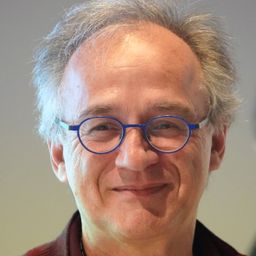
Prof. Dr. (interim) Heike Oevermann teaches Heritage conservation at the Otto-Friedrich Universität Bamberg. She gives lectures at diverse Universities in Berlin, Weimar and Europe and conducts research on industrial and urban heritage for more than ten years now. She is specialized in the intersection of heritage conservation, history of architecture and urbansim, and urban development. Her current project that is funded by the German Research Foundation (DFG) at the Humbold-Universität zu Berlin is about historic textile mills.
Sessions auxquelles Heike Oevermann participe
Jeudi 1 Septembre, 2022
The textile sector led industrialization and urbanization worldwide for nearly three centuries. Textile industries established global trade networks based on transport, skills, knowledge, and power. They changed territories, landscapes, and cityscapes. Mill complexes and their infrastructure - canals for power and transport, railways, warehouses, and workers' housing- form historic rural or urban landscapes and represent global chains of production. This textile heritage includes tangible ...
Sessions auxquelles Heike Oevermann assiste
Dimanche 28 Août, 2022
Cet itinéraire d'une journée, le jour de l'inauguration du congrès, permettra aux visiteurs de découvrir Exporail à Saint-Constant, la Centrale hydroélectrique de Beauharnois et le
Joignez-vous aux organisateurs du congrès et aux membres du board de TICCIH pour un cocktail de bienvenue et quelques mots festifs de présentation, dans l’ancienne forge de l’École technique de Montréal, fondée en 1909, aujourd’hui intégrée au campus de l’Université du Québec à Montréal.
Lundi 29 Août, 2022
This session presents case studies and policy reviews that contribute to ongoing debate and international dialogue on the role of planning systems and conservation practices in addressing the challenges of citizen engagement—conserving local interests, place attachments alongside physical remnants of industrial heritage. Over the past half century, we have witnessed the development and changing focuses of urban planning and conservation discourses addressing industrial heritage. Relevant p...
Industrialization processes have been global from their very beginning. However, their interpretation still tends to be limited to specific locations or regions, and to specific time periods. Regularly, for example, it is stated that the industrial revolution started in Europe, from where it spread to the world, supposedly bringing technological and social progress to „less developed“ countries. Earlier periods of technology and knowledge transfer processes, that were already in place in t...
This session presents case studies and policy reviews that contribute to ongoing debate and international dialogue on the role of planning systems and conservation practices in addressing the challenges of citizen engagement—conserving local interests, place attachments alongside physical remnants of industrial heritage. Over the past half century, we have witnessed the development and changing focuses of urban planning and conservation discourses addressing industrial heritage. Relevant p...
Industrialization processes have been global from their very beginning. However, their interpretation still tends to be limited to specific locations or regions, and to specific time periods. Regularly, for example, it is stated that the industrial revolution started in Europe, from where it spread to the world, supposedly bringing technological and social progress to „less developed“ countries. Earlier periods of technology and knowledge transfer processes, that were already in place in t...
This session presents case studies and policy reviews that contribute to ongoing debate and international dialogue on the role of planning systems and conservation practices in addressing the challenges of citizen engagement—conserving local interests, place attachments alongside physical remnants of industrial heritage. Over the past half century, we have witnessed the development and changing focuses of urban planning and conservation discourses addressing industrial heritage. Relevant p...
Patrimoine industriel et photographie entretiennent des relations étroites. La photographie constitue une source de l’archéologie industrielle. Elle permet d’éclairer les liens entre les hommes, leurs outils, leurs machines et leurs lieux de travail. Elle est également, une fois l’activité industrielle terminée, un outil de documentation et d’étude des sites. Mais bien au-delà, saisie par des artistes capables de transcender les représentations communes, conférant aux vestiges industriels ...
Si la vallée du canal de Lachine a été le berceau de l’industrialisation canadienne, la géographie industrielle métropolitaine ne s’y est pas confinée, peu s’en faut, Outre les grandes concentrations d’entreprises des quartiers centraux, elle est constituée des réseaux infrastructuraux, d’une douzaine de centrales hydroélectriques et des ensembles manufacturiers disséminés dans une quinzaine de petites villes aujourd’hui intégrées dans l’aire métropolitaine. La conférence proposera un surv...
Joignez-vous à nous pour poursuivre de manière informelle la discussion lancée lors de la conférence publique.Une consommation sera offerte aux quinze premières personnes arrivées.
Mardi 30 Août, 2022
This session focuses on company towns from the perspective of urban planning. “Company towns” are here defined as single-enterprise planned communities, usually centered around a single industry, where a company commissions an urban plan, builds housing for its workers, and sets up recreational, commercial, institutional or community facilities. While these are now endangered by a second wave of deindustrialization, we observe that, aside studies or monographs of individual towns that popu...
This session focuses on company towns from the perspective of urban planning. “Company towns” are here defined as single-enterprise planned communities, usually centered around a single industry, where a company commissions an urban plan, builds housing for its workers, and sets up recreational, commercial, institutional or community facilities. While these are now endangered by a second wave of deindustrialization, we observe that, aside studies or monographs of individual towns that popu...
Les efforts visant à préserver le patrimoine industriel s'inscrivent dans un contexte socio-économique et politique précis. Mais qu'est-ce qui est préservé et pour qui ? Et, par ailleurs, quelle est la relation entre les sites du patrimoine industriel et les communautés ouvrières soumises à la désindustrialisation qui les jouxtent souvent ? Steven High examinera les façons dont la préservation du canal de Lachine à Montréal, le principal site du patrimoine i...
Mercredi 31 Août, 2022
In this lecture, I would like to talk about deindustrialised communities, heritage and memory in the context of right-wing populism. Drawing on studies of memory and heritage, I argue that right-wing populists have cornered the market on talking about the past of deindustrialised communities. They have successfully misrepresented this rich and complex history to fuel rage, resentment, fear and reactionary nostalgia. Indeed, ‘the past’, and in particular the industr...
Jeudi 1 Septembre, 2022
De sa construction à sa restauration, plongez dans l’histoire et le présent de ce lieu incontournable du patrimoine industriel canadien. Voie maritime centrale au pays, port intérieur majeur, le Lowell canadien (recours à l’énergie hydraulique), berceau de l’industrialisation, Smokey Valley (recours à la vapeur), haut lieu de l’industrie manufacturière, le canal de Lachine est tout cela et plus encore. Car, il est également un lieu historique national où, depuis la réouverture du canal à l...
This lecture will argue that the landscapes of industrial heritage that can be found in different parts of the world are directly related to the place-specific trajectories of deindustrialization. In other words: the different ways in which deindustrialization impacts on local communities has a direct bearing on the emergence of forms of industrial heritage. I will differentialte between deindustrialization paths and related industrial heritage regimes in a) Anglo-...
Le quartier Centre-Sud est un ancien quartier industriel et ouvrier ; son patrimoine est riche et unique. La visite permettra de découvrir, entre autres, l’usine Macdonald Tobacco et la confiserie Raymond, les anciens logements ouvriers typiques du quartier, et les réutilisations d’anciens bâtiments à des fins culturelles et communautaires. L’activité débutera au métro Frontenac et se terminera par une visite à l’Écomusée du fie...
Vendredi 2 Septembre, 2022
At every World Congress, the international TICCIH community celebrates a General Assembly of its members. The event is open for any registered member of TICCIH, as well as the wider public. According to the current TICCIH Statutes (https://ticcih.org/about/statutes/), however, only Na...
In the refusal of people in communities abandoned by industrial capital to abandon their own places, we can read an implicit critique of the mobility and unaccountability of capital, raised by those who were once inside (however tenuously or uncomfortably) and now find themselves marginalized, “left behind.” The desire to catch up again, whether through attracting new investment or transvaluing abandoned sites as tourist attractions, makes this an essentially conservative critique that is ...
Venez échanger sur les bons moments du congrès et célébrer vos découvertes scientifiques et professionnelles dans une ancienne fabrique de confiture de fruits, l’Usine C, construite en 1913 et transformée à la fin des années 1970 en lieu de création et de diffusion.Découvrez la gastronomie montréalaise grâce à un traiteur d’exception. Apprenez des bribes du patrimoine musical montréalais et de l’histoire du quartier industriel qui lui a prêté vie. Puis entendez et vivez la tradition...
Samedi 3 Septembre, 2022
Suivez les traces du réseau ferroviaire du Canadien Pacifique et des anciens ateliers Angus, qui ont joué un rôle majeur dans le développement industriel et résidentiel du quartier Rosemont. Cette visite vous propose de mieux comprendre l'histoire de différents sites industriels établis dans ce quartier et transformés aujourd'hui en milieux de vie et en pôles d'emploi.Une visite conçue et guidée par Héritage Montréal. Départ au coin des rues...








